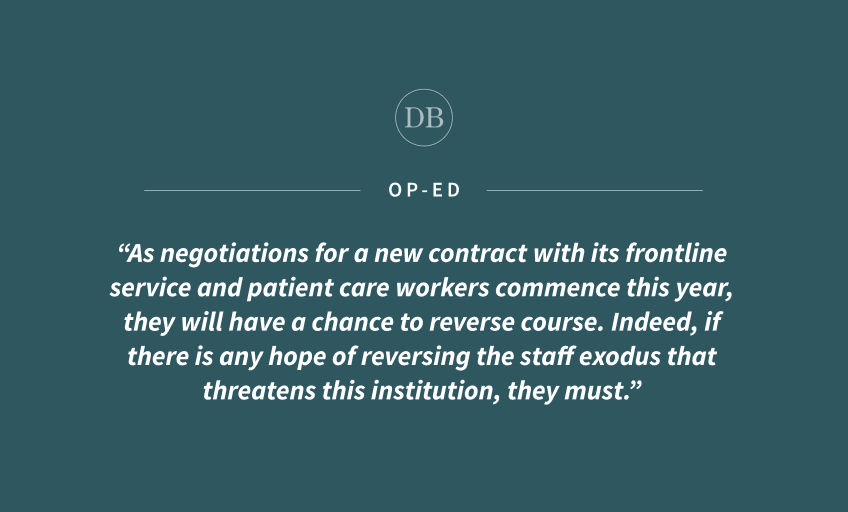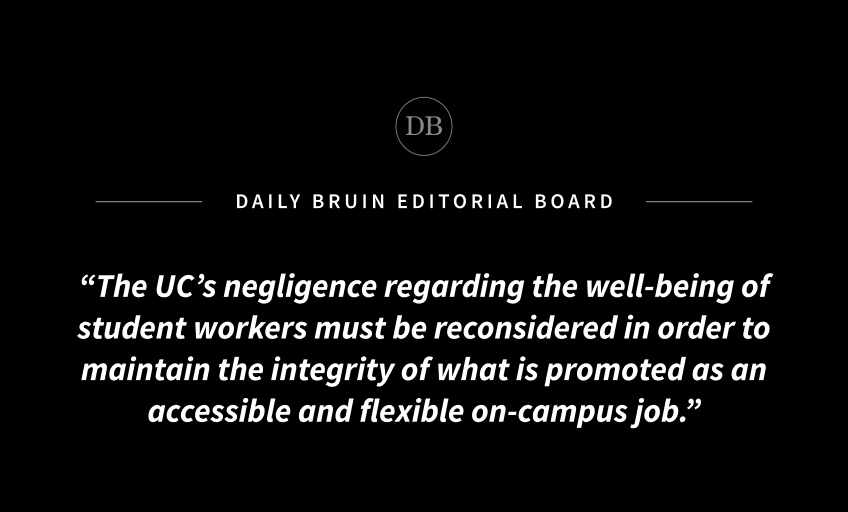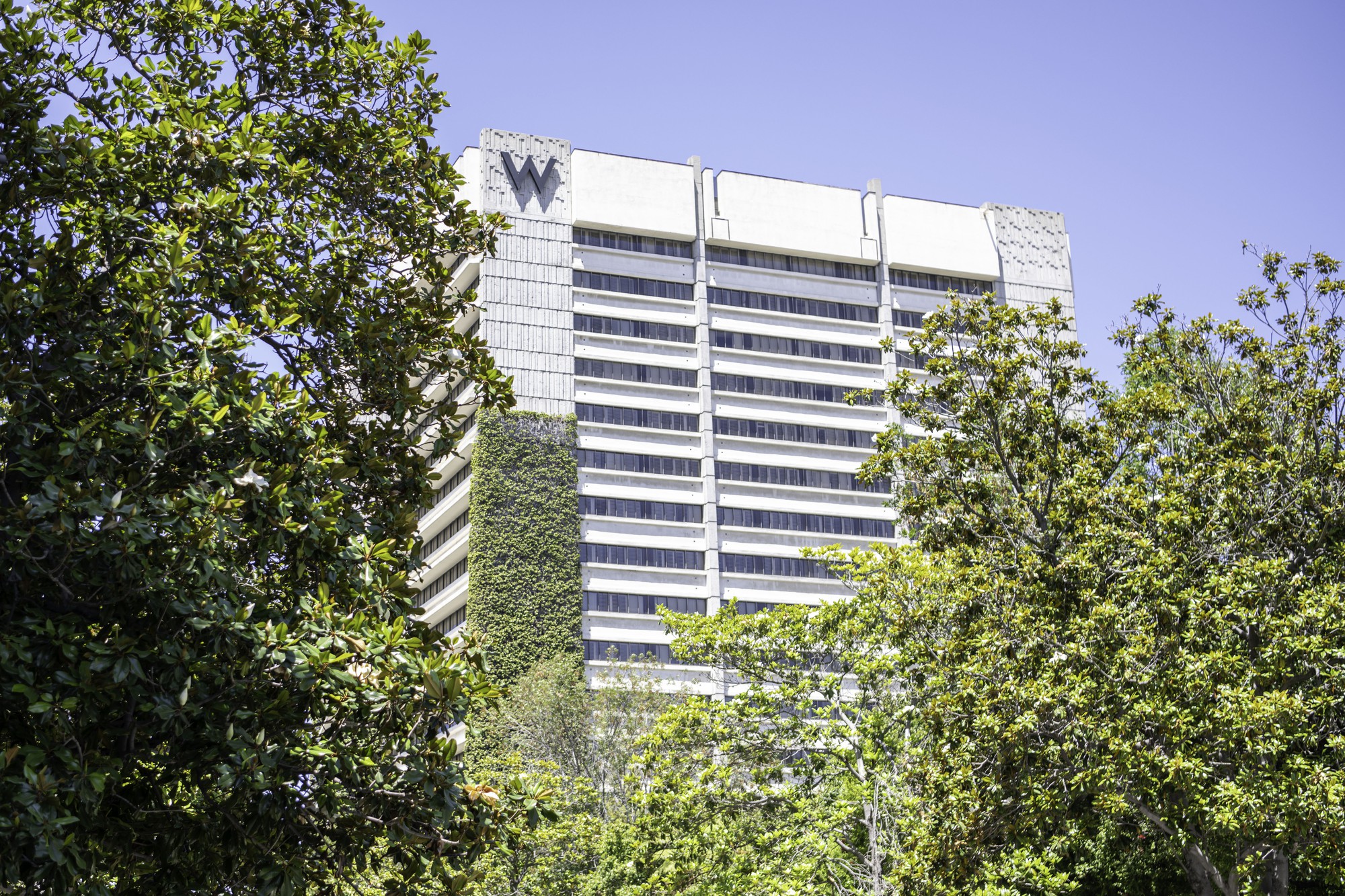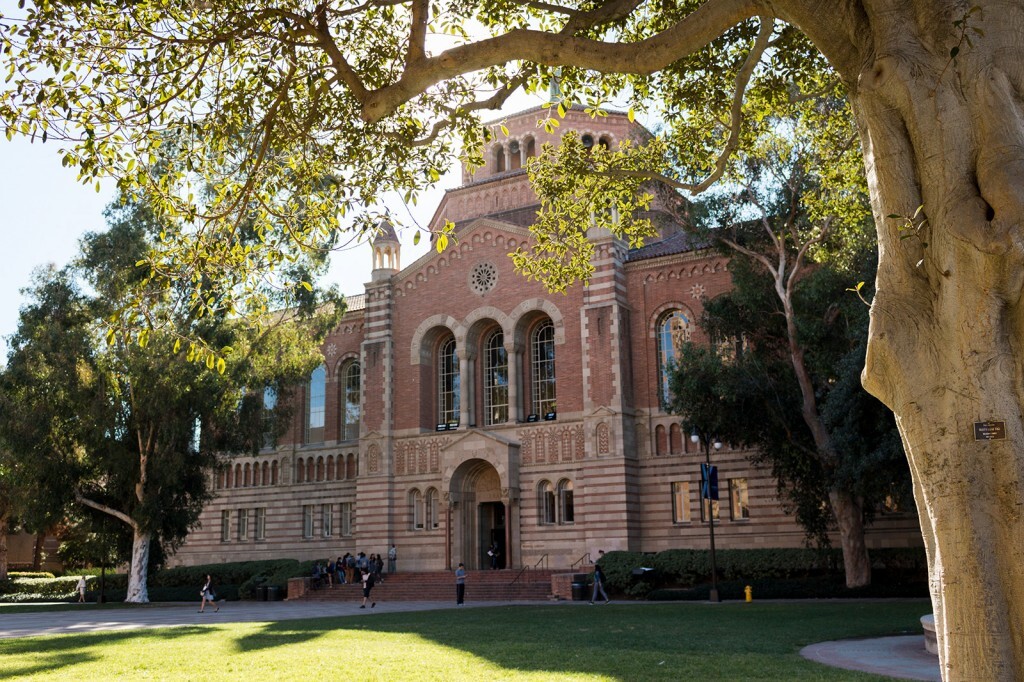Op-ed: UC must renegotiate frontline worker contracts to reverse staff exodus

By Michael Avant
Jan. 17, 2024 9:08 p.m.
It’s been almost a year since University of California Chief Financial Officer Nathan Brostrom warned the Board of Regents that staff vacancies had tripled since the start of the COVID-19 pandemic.
“That’s not good for staff experience, faculty experience or student experience,” he said.
In the months since, we’ve learned more about what’s driven the UC’s staff exodus. Research shows that the real wages of frontline UC service and patient care workers, as well as unrepresented student workers, have been crushed by the weight of inflation – even as housing, fuel and food costs have soared and pushed basic needs further and further out of reach for a growing share of these same workers. Some UC workers have to sleep in their cars to work due to low wages and compensation, according to the Sacramento Bee.
As UC workers struggled, other groups of workers across our country – including writers, nurses and auto workers – have taken to picket lines in large numbers. For each, a similar refrain. The rent is too high and the pay too low. The overwhelming majority of Americans – whether in unions or not – have stood with them. That’s a good thing.
Sadly, UC administrators have chosen a very different path.
First, they announced an over $4 billion investment in a speculative and controversial private equity trust that relies on raising rents in order to deliver returns to shareholders. Workers and UC students mounted protests, arguing the move would make California’s housing crisis worse. They called for divestment, and these pleas were dismissed.
Last spring, the UC Board of Regents took further action to grant extravagant pay raises to their top administrators, chancellors and senior executives – most of whom already earn six- and seven-figure base salaries. For example, the chancellor at UC San Diego got a staggering $500,000 pay boost.
The UC is California’s third largest employer, third largest health care system and single largest landlord. It receives billions of dollars in state taxpayer support. In July 2021, the UC raised tuition and has seen its annual funding from the state increasing every year.
Yet for the frontline workers who make UC run – the ones who answer the call button in hospitals, custodians, groundskeepers, shuttle drivers, food service workers and so much more – wages haven’t kept pace with the cost of living. There is no option to rent near work. Commute times may exceed two to three hours each way, imposing hundreds of dollars in gas and hundreds more for parking each month.
Frontline UC workers don’t have the luxury of working remotely. For many, this meant putting their lives at risk during the COVID-19 pandemic. When campuses shut down, many campus custodians and other low-wage workers volunteered to support UC Health services. At the time, they were praised as heroes.
But praise doesn’t pay the rent when you are struggling to survive.
That’s why in June, we called on administrators to address the UC’s staff exodus by implementing a $25 per hour systemwide minimum wage, alongside a 5% pay bump for those already earning more than $25 per hour.
We’ve explained that such an investment would cost the UC less than 1% of its $47 billion operating budget.
Yet our pleas have consistently been ignored, even as UC administrators lament the ongoing staff exodus.
Here’s the bottom line. Years of state budget increases have made it clear that Californians value the UC – a self-proclaimed “engine of social mobility” for California. The problem is that the UC doesn’t appear to value the frontline workers who make the institution run.
How else can you explain not providing anywhere enough housing for students nor its growing legions of housing-cost-burdened staff, nor the pay required to compete in the local labor markets of campus communities? How else can you explain investing in higher pay for executives and speculative investments that rely on California’s affordability crisis to get worse, as frontline staff report sleeping in their cars and putting themselves at risk in increasingly under-staffed departments?
It is, by any measure, a moral failure. But to the frontline workers who have devoted their careers to the UC, it is deeply disappointing.
The UC can change that perception, but it requires action and not just words. As negotiations for a new contract with its frontline service and patient care workers commence this year, they will have a chance to reverse course. Indeed, if there is any hope of reversing the staff exodus that threatens this institution, they must.
Michael Avant is the president of American Federation of State, County and Municipal Employees Local 3299, which represents more than 30,000 UC Service and Patient Care Technical Workers across the system’s 10 campuses, six health centers and numerous research laboratories.





